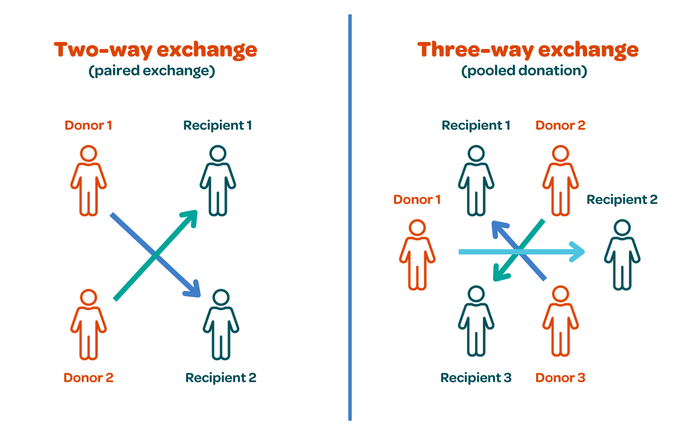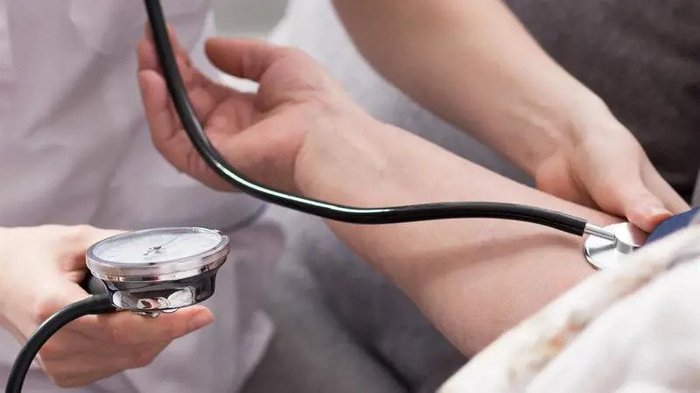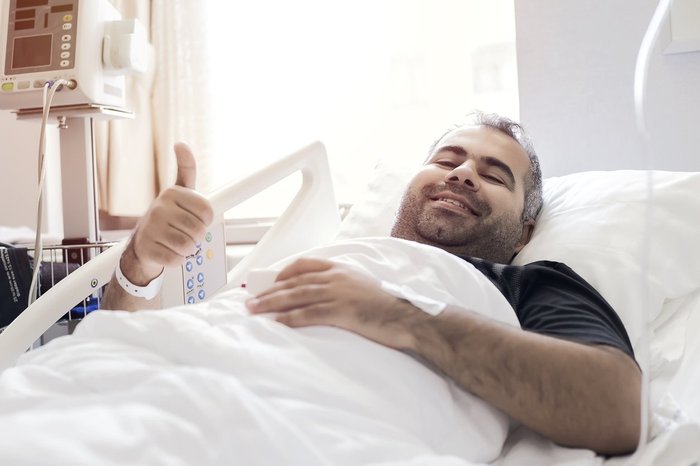What is living kidney donation?
Living kidney donation is when a healthy person (donor) chooses to give one of their kidneys to someone who needs it (the recipient).
People can live perfectly healthy lives with just one kidney.
After donation you would be followed up by the hospital or your GP to make sure you remain healthy.
Can I donate a kidney?
If you are over the age of 18 and in good health you can be considered as a living kidney donor. There are several tests you will need to go through to make sure you are healthy enough to donate and that your kidney is a suitable match for the intended recipient.
You will not be able to donate if you have had cancer, or if you have diabetes, heart disease or a condition affecting your kidneys.
Choosing to donate your kidney is a very big decision and you should talk it through with your family and friends, as well as your doctor.
You have the right to change your mind about donating at any time, right up until the operation itself.

Who can I donate my kidney to?
Most people who choose to donate a kidney do this to help a family member or close friend. For example, a parent may wish to give a kidney to their child. This is called a directed donation. It is also possible to give a kidney to a complete stranger and this is called altruistic (non-directed) donation.
In general, your kidney has to be the right blood and tissue type to ‘match’ the intended recipient. There are lots of tests during the assessment process to make sure that you are well enough to undergo major surgery and that you have enough kidney function to spend the rest of your life with one rather than two kidneys.
What is paired or pooled donation?
If you want to donate your kidney to a specific person but your kidney is not a good match for them, you can choose to enter into the National Living Donor Sharing Scheme. In this scheme, your kidney will be given to someone else who is a good match and their intended donor will give their kidney to your recipient.

How do I let people know I am interested in donating?
The first step is to contact your local kidney transplant centre and register your interest. A list of contact details can be found on the NHS Organ Donation website.
You will be put in touch with a Living Donor Transplant Coordinator who will contact you to discuss your reasons for wanting to donate and to explain the assessment process.
What tests will I need to go through to donate a kidney?
The order of the tests may vary between hospitals. They may take place on the same day, or you may be asked to go back to the hospital on different occasions for each test. In general, the tests can be divided into two phases:
Phase one
- Questionnaire to check general health/medical history.
- Height / weight measurements.
- Blood pressure checks.
- Blood tests to make sure you are in good health and to test for illnesses or infections.
- Blood group tests to ensure compatibility between yourself and the recipient.
- Urine tests to check for infections or problems with your own kidneys.
- An electrocardiogram (ECG) test to make sure your heart is healthy.
You will be given the test results at each stage and any abnormalities will be discussed with you.
Some tests may need to be repeated. Some may be at your local hospital, whereas others will be at the transplant centre.
Phase two
If all phase one tests are normal, you proceed to phase two. These tests are more specialised and may include:
- Chest X-ray to make sure there are no problems with your lungs.
- CT/MRI scan of kidneys to check their structure and position.
- Test to measure your kidney function (also called the glomerular filtration rate or GFR.) A small amount of very safe radioactive ‘dye’ is injected into a vein and blood samples taken to measure how well your kidneys process it.
- Blood group and tissue matching to make sure you are a suitable match for your intended recipient or to find a suitable recipient if you are entering into the National Living Donor Sharing Scheme.
You will have an appointment with a kidney doctor to discuss your test results and may be referred to a psychologist. You will then discuss the operation with a transplant surgeon.
Next steps
If all tests are normal and your kidney doctor and surgeon give the go-ahead, the final step is to meet with an independent assessor, trained by the Human Tissue Authority. This is a legal requirement to make sure that:
- You are who you say you are – you will need official identification as proof
- You are acting of your own free will in offering to donate a kidney
- You understand the process and what the operation will involve

How long will all the tests take?
This can vary between hospitals depending on the availability of appointments. In general, it takes between three and six months to complete all of the tests, but it may take longer if some tests need to be repeated or if you need extra tests.
Will I get paid for donating a kidney?
No. This is illegal in the UK. During your assessment you can claim back your travel expenses and you may also be able to claim for loss of earnings if you have to take unpaid leave from work. You should speak to the Living Donor Coordinator and your employer about this.
What happens if I am approved as a donor?
A date will be booked for the operation and this will, where possible, fit in with your own choices and the recipient’s needs.
During the operation you will be given a general anaesthetic. Your kidney will be removed and placed in the recipient. If the recipient is a family member or friend, this is likely to happen in the same hospital as your own operation (though if the recipient is a child, their operation may take place in a children’s hospital). If it is a non-directed donation or your kidney goes into the National Living Donor Sharing Scheme, your kidney will be sent wherever in the country the recipient is being treated.
Are there any risks to donating?
Although all operations carry some degree of risk, kidney donation is a common procedure which will be carried out by an expert team who will quickly identify and treat any problems that occur. During your assessment, the risks of kidney donor surgery will be explained to you and you will be able to ask questions, but please speak to your transplant team at any stage if you have any concerns.
What happens after the operation?
You will stay in hospital for a few days after your operation. You will be given pain-killing medication and you will be encouraged to get out of bed and start moving around as soon as you feel able. You will need to rest at home for several weeks after you leave hospital. It is generally recommended that you take between four to six weeks off work, or longer depending on the nature of your job.

Will there be any long-term consequences?
You will have annual appointments with either your GP or the hospital for blood pressure, blood and urine checks. People living with one kidney rather than two have a slightly higher risk of developing high blood pressure or future kidney problems than the general population. However, your kidney team will monitor you carefully to make sure any problems are spotted and treated early.
Donating a kidney will not affect your ability to have children although you will need to tell your doctor that you are a kidney donor if you do become pregnant as you may need more frequent health checks during pregnancy. It is important that you maintain a healthy lifestyle after kidney donation and that you do not smoke as this can speed up the decline in kidney function that occurs with normal ageing.
What happens if I am not suitable to donate?
The transplant team need to make sure that donating a kidney will not harm you or increase your own risk of having kidney problems in the future. If they decide that your risks are too high, they will advise you not to be a kidney donor and will explain the reasons to you.
Although this may be disappointing, please remember that you have made a very generous gesture by going through the assessment process and being willing to make such a sacrifice for someone else.
How else can I help?
If you are unable to donate a kidney you may like to become a blood, bone marrow and/or platelet donor which will help save many people’s lives.
You can also sign up to the Organ Donor Register to show that you would like your organs to be offered for transplantation after you die.
You could also consider fundraising for Kidney Care UK, the UK’s leading kidney patient support charity, to help us ensure that no one faces kidney disease alone.
Where can I find out more information?

Publication date: 09/2023
Review date: 09/2026